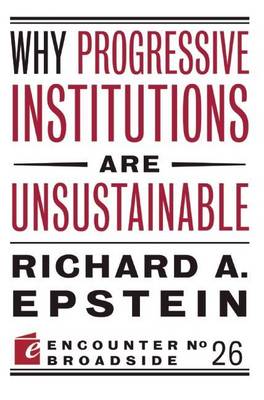Encounter Broadsides
1 total work
The painful performance of the American economy in the past decade is not a function of bad luck. It is the product of flawed institutional design. Right now we are reaping the harvest of efforts to reinvigorate the progressive programs of the New Deal that stress high progressive taxes, large transfer payments, strong labor laws, and major barriers to free trade. This combination of public finance and market regulation has proved a potent force for disaster. High marginal tax rates expose the political system to strong factional strife that stifles initiative, adds uncertainty and reduces overall revenues. To these multiple ailments, Epstein argues that the best recipe is a return to the flat tax of the classical liberal tradition. The government has committed itself to substituting state mandates for voluntary arrangements in labor and real estate markets, disabling both by retarding job formation and roiling real estate markets. To these multiple ailments, Epstein argues that the best recipe is a reinvigoration of free markets that do not upset voluntary arrangements on the supposed grounds that they are unfair, one-sided or exploitive.
Just change these two levers, and we can find an effective classical liberal antidote to excesses of the modern progressive age.
Just change these two levers, and we can find an effective classical liberal antidote to excesses of the modern progressive age.
